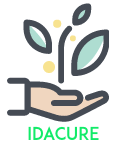Introduction: Polycystic Ovary Syndrome (PCOS) is a common hormonal disorder that affects many women worldwide. While medical interventions can be beneficial, there are also natural approaches that can help manage PCOS symptoms and promote overall well-being. In this blog post, we will explore some nature-based strategies and lifestyle changes that can complement medical treatments and support your journey toward hormonal balance and improved health.
- Diet and Nutrition: A healthy diet plays a crucial role in managing PCOS symptoms. Consider the following dietary recommendations:
a) Low-Glycemic Foods: Opt for whole grains, legumes, and non-starchy vegetables, which have a lower impact on blood sugar levels. Avoid refined carbohydrates and sugary foods that can exacerbate insulin resistance.
b) Healthy Fats: Incorporate sources of healthy fats like avocados, nuts, seeds, and fatty fish. These can help regulate hormone production and reduce inflammation.
c) Balancing Protein: Include lean protein sources such as poultry, fish, tofu, and beans in your meals. Protein helps stabilize blood sugar levels and promotes satiety.
- Regular Exercise: Engaging in regular physical activity can have a positive impact on PCOS symptoms. Exercise helps improve insulin sensitivity, manage weight, reduce stress, and boost overall well-being. Choose activities you enjoy, such as brisk walking, swimming, yoga, or dancing. Aim for at least 150 minutes of moderate-intensity exercise per week.
- Stress Management: Chronic stress can disrupt hormone balance and worsen PCOS symptoms. Implement stress-reduction techniques like meditation, deep breathing exercises, yoga, or spending time in nature. Find activities that bring you joy and relaxation, allowing your body to unwind and restore its natural equilibrium.
a) Full body detoxification: The concept of detoxification has gained significant popularity in recent years as people seek ways to rid their bodies of toxins and promote overall well-being. Full body detoxification refers to a process that aims to cleanse the body of accumulated toxins and impurities, supporting its natural detoxification systems. While the body has its own mechanisms for eliminating waste, some believe that periodic detoxification can enhance these processes and improve health. In this article, we will explore the concept of full-body detoxification, its potential benefits, and some popular methods that people use to detoxify their bodies. However, it’s important to note that the scientific evidence supporting the effectiveness of full-body detoxification is limited, and it’s always advisable to consult with a healthcare professional before embarking on any detox program.
b) Acupressure and Acupuncture therapy:Acupressure: Acupressure involves applying pressure to specific points on the body using fingers, hands, or specialized tools. These points, known as acupoints, are believed to be connected to different organs and systems in the body. By pressing or massaging these acupoints, acupressure practitioners seek to relieve pain, reduce tension, improve circulation, and enhance overall well-being. Acupressure can be practiced on oneself or by a trained practitioner.
Acupuncture: Acupuncture is similar to acupressure but involves the insertion of thin, sterile needles into specific acupoints on the body. The needles are typically left in place for a short duration, ranging from a few minutes to half an hour, while the individual rests. The stimulation of these acupoints is believed to regulate the flow of Qi and restore balance in the body. Acupuncture is commonly used for pain management, stress reduction, improving fertility, and treating various health conditions.
Benefits and Safety: Both acupressure and acupuncture are considered safe when performed by trained and licensed practitioners. While the scientific evidence supporting their effectiveness is still evolving, some studies suggest that these therapies may have several benefits. These benefits can include pain relief, stress reduction, improved sleep, enhanced relaxation, improved digestion, and increased overall well-being. However, it’s important to note that individual responses to acupressure and acupuncture may vary, and results cannot be guaranteed for all individuals or conditions.
c) Moxibustion Therapy: Moxibustion therapy: An ancient technique using burning herbs to stimulate acupuncture points.
d) Hydrotherapy etc. & So many other Naturopathic Treatments: Naturopathic treatments encompass a wide range of therapies that focus on supporting the body’s natural healing processes. Here are a few examples, including hydrotherapy:
- Hydrotherapy: This therapy involves the use of water in various forms, such as baths, compresses, or wraps, to promote healing and relieve symptoms. Hydrotherapy can improve circulation, reduce muscle tension, support detoxification, and provide relaxation.
Conclusion: While PCOS can be a challenging condition to manage, adopting a holistic approach that combines medical treatments with natural strategies can significantly improve symptoms and quality of life. By focusing on diet, exercise, stress management, herbal supplements, and sleep, you can work towards restoring hormonal balance and optimizing your overall health. Remember to consult with healthcare professionals for personalized advice and guidance on your PCOS journey. Embrace nature’s healing power and empower yourself in the pursuit of a healthier and happier life.




